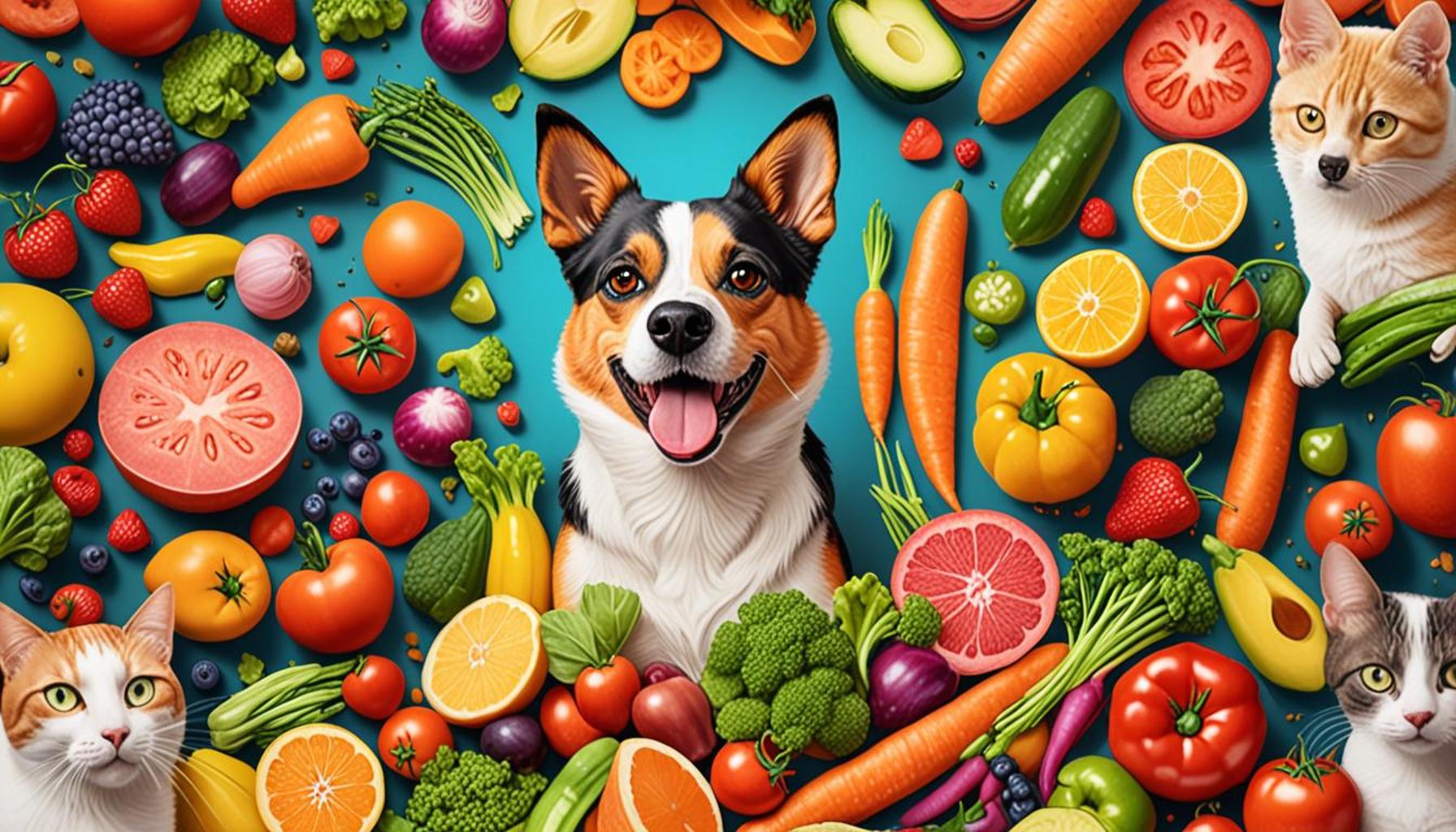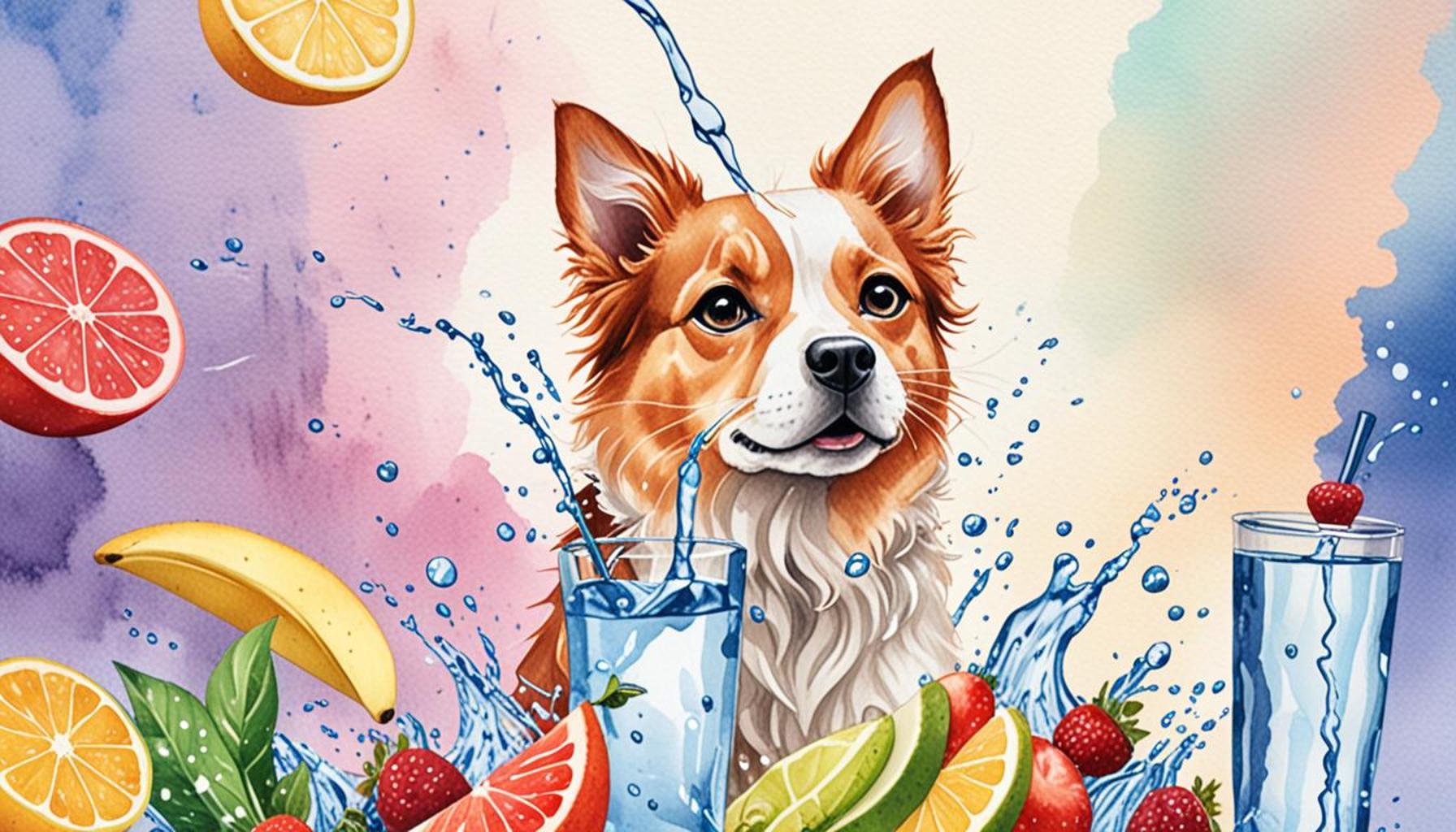The Impact of a Vegetarian Diet on the Health of Dogs and Cats

Exploring the Vegetarian Diet for Pets
As pet owners increasingly consider their own dietary choices, the question arises: can our furry companions thrive on a vegetarian diet? Recent studies and increasing anecdotal evidence suggest that a vegetarian diet may not only be feasible for dogs and cats but could also offer several health benefits. Yet, it’s essential to approach this dietary shift with careful consideration and to understand the potential risks involved alongside the benefits.
Potential Benefits of a Vegetarian Diet
- Improved Digestive Health: Many pets exhibit improved digestion on a vegetarian diet, largely due to the higher fiber content. Fiber aids in regulating the digestive system, promoting regular bowel movements, and reducing the likelihood of gastrointestinal issues. For example, some pet owners have reported that their dogs experience less bloating and discomfort after transitioning to a plant-based diet.
- Reduced Allergies: Another advantage of a vegetarian diet is the potential to minimize allergic reactions. Common meat proteins, such as beef and chicken, can trigger allergies in some pets, leading to skin irritations and digestive problems. By switching to a vegetarian diet that emphasizes novel plant proteins, owners may find relief for their pets with sensitivities.
- Enhanced Nutritional Variety: Plant-based diets introduce a wide variety of vitamins and minerals that might not be as prevalent in traditional meat-based diets. Ingredients such as quinoa, lentils, and a plethora of vegetables provide essential nutrients like antioxidants that can bolster overall health and vitality in pets.
However, not all pets are suited for vegetarianism, and the implications on health can vary significantly depending on the individual pet’s needs. Understanding the unique dietary requirements of cats and dogs is crucial, particularly when considering the following factors:
- Carnivorous Nature: Cats are obligate carnivores, meaning they inherently require certain nutrients that are predominantly found in meat, such as taurine, vitamin A, and arachidonic acid. These nutrients are crucial for heart and eye health, and a lack of them can lead to serious health issues.
- Different Metabolic Processes: Dogs, while more adaptable than cats and considered omnivores, still have distinct nutritional needs that can vary based on age, breed, and health conditions. It’s important for pet owners to consult with a veterinarian to ensure their dog’s health is not compromised when altering their diet.
This exploration into the impact of a vegetarian diet on the health of dogs and cats will illuminate the benefits and challenges of such an approach. As pet owners navigate the world of pet nutrition, they should be well-informed about the essential nutrients needed for their pets’ well-being. Consulting with a veterinary nutritionist can help tailor diets that meet individual health profiles and lifestyle needs, ensuring that dietary changes lead to a happier, healthier life for furry companions.
Furthermore, as we witness an increasing shift in attitudes toward animal welfare and environmental sustainability, the dialogue around vegetarian diets for pets is likely to continue evolving. Pet owners are encouraged to stay abreast of ongoing research in this area and to make informed choices that not only benefit their pets but also align with their values.
LEARN MORE: Click here for deeper insights

Navigating Nutritional Needs for Pets
When considering a vegetarian diet for dogs and cats, understanding the fundamental dietary requirements pivotal to their health is paramount. Each species possesses unique nutritional profiles that must be maintained even in the absence of meat. The challenge for pet owners lies in ensuring that these requirements are met through carefully curated plant-based alternatives.
Essential Nutrients for Dogs and Cats
Both dogs and cats derive energy and necessary nutrients from their diets, but the sources and types of these nutrients can differ radically between species. This distinction plays a crucial role in determining whether a vegetarian diet can be a viable option.
- For Dogs: As omnivores, dogs can digest a combination of plant and animal foods, which offers some flexibility in their diet. However, they still require a range of essential nutrients such as:
- Protein: A critical component for muscle development and overall health. Plant proteins from sources like lentils and chickpeas can be included, but they must be complemented with essential amino acids.
- Fat: Healthy fats are vital for energy and skin health. Sources such as flaxseed oil or coconut oil can provide the essential fatty acids that a dog may need.
- Vitamins and Minerals: Dogs require specific vitamins like B12 and minerals such as calcium, which can often be found in fortified foods or supplements to ensure adequate intake.
- For Cats: Unlike dogs, cats are obligate carnivores with much stricter dietary restrictions. Certain nutrients crucial for cat health must be sourced from animal products, including:
- Taurine: An essential amino acid critical for heart function, vision, and reproduction. A deficiency in taurine can lead to severe health conditions, making it a non-negotiable component of their diet.
- Vitamin A: Cats cannot synthesize vitamin A from beta-carotene found in plants and must obtain it from animal products.
- Arachidonic Acid: This fatty acid is necessary for skin and coat health, as well as for inflammation response and is usually found in animal fats.
Before transitioning a dog or cat to a vegetarian diet, pet owners should explore various options and consult professionals, such as veterinarians or pet nutritionists. They can provide tailored advice and suggest dietary adjustments to ensure that all essential nutrients are sufficiently provided. Not all vegetarian diets are created equal, and a well-planned approach is crucial to maintain health and prevent deficiencies.
Understanding the intricacies of their nutritional needs not only aids in maintaining your pet’s health but also highlights the importance of research and consultation. As the conversation around a vegetarian diet for pets expands, pet owners are encouraged to explore recent findings, trends, and available resources to continue making informed choices for their furry family members.
Exploring the effect of a vegetarian diet on our furry companions has opened up a plethora of fascinating insights. Proponents of plant-based nutrition for dogs and cats often tout numerous advantages that could potentially enhance their quality of life. While these diets are somewhat controversial, awareness continues to grow regarding the nutritional adequacy and health benefits when formulated properly.
One significant advantage of a vegetarian diet is its ability to reduce the risk of certain diseases. Many studies suggest that diets low in animal fats are linked to lower instances of obesity, diabetes, and certain types of cancers in pets. This trend mirrors findings in human diets, thereby prompting pet owners to consider similar dietary adjustments.
Furthermore, a vegetarian diet can also contribute to better digestive health. Ingredients high in fiber, such as fruits, vegetables, and grains, can improve gut health, leading to more regular bowel movements and potentially fewer gastrointestinal issues. This is crucial as many pets suffer from digestive problems, and a well-structured vegetarian diet may alleviate these concerns.
In addition, transitioning to a plant-based diet can yield environmental benefits. Fewer animal products mean a reduced ecological footprint, appealing to pet owners who prioritize sustainability. These pet parents are often interested in the welfare implications behind food choices, inspiring them to seek out vegetarian options for their pets.
| Advantages | Details |
|---|---|
| Reduced Risk of Diseases | Lower instances of obesity, diabetes, and certain cancers |
| Improved Digestive Health | Higher fiber intake for regular bowel movements |
Additionally, with advancements in veterinary nutrition and products specifically designed for vegetarian diets, pet owners can rest assured that essential nutrients, such as protein, vitamins, and minerals, can still be adequately provided. It’s essential, however, for pet owners considering this dietary transition to consult with a veterinarian to ensure that their pets maintain optimal nutritional balance throughout the change.
Overall, the movement towards vegetarian diets for dogs and cats represents a growing area of interest. As more research emerges, pet owners find themselves empowered to explore options that may promote health and well-being for their beloved companions.
LEARN MORE: Click here to discover positive training techniques
Challenges and Considerations in Implementing a Vegetarian Diet
While a vegetarian diet for pets may have potential benefits, it also presents several challenges that pet owners must navigate to ensure optimal health for their furry companions. Some of the most pressing issues involve the careful formulation of diets, monitoring for deficiencies, and understanding the pet’s individual needs.
Formulating the Right Vegetarian Diet
Creating a well-balanced vegetarian diet for dogs and cats requires thoughtful consideration of their distinct dietary components. For dogs, the common misconception is that a vegetarian diet can be simply achieved by removing meat without replacing it with suitable alternatives. Instead, zealous attention must be given to ingredients rich in plant-based protein. This includes options like quinoa, which is a complete protein source, or pumpkin seeds, which are high in protein and beneficial fatty acids.
For cats, formulating a vegetarian diet becomes significantly more complex due to their unique physiological requirements. The inclusion of nutritional yeast can provide a source of B vitamins, while carefully chosen algae can supply DHA and EPA, crucial fatty acids typically found in fish. Forward-thinking brands in the pet food industry have started producing vegetarian formulations that specifically address these bioactive requirements, but pet owners must remain vigilant to ensure these products genuinely meet their pets’ nutritional needs.
Monitoring for Nutritional Deficiencies
One of the predominant risks of switching a pet to a vegetarian diet is the potential for nutritional deficiencies. Deficiencies in essential nutrients can lead to adverse health outcomes. For example, studies have highlighted that dogs on poorly planned vegetarian diets may suffer from deficiencies in vitamin B12 and iron, both of which are abundant in animal products.
In the case of cats, the absence of taurine in their diets can lead to serious health issues like dilated cardiomyopathy and retinal degeneration. In these situations, it is vital for pet owners to make regular visits to the veterinarian to conduct blood tests that can help identify any insufficiencies. Additionally, many pet owners choose to supplement their pets’ diets with essential vitamins and minerals. However, it’s important to consult with a veterinary nutritionist before adding any supplements to avoid overdosing or imbalances.
Behavioral Considerations and Acceptance
Transitioning dogs and cats to a vegetarian diet can also involve behavioral challenges. Pets, being creatures of habit, may resist the introduction of new foods. Patience and gradual adaptation are essential. Encouraging acceptance can be aided by mixing the new vegetarian options with their regular food over a period of time. Observing a pet’s reaction to dietary changes is critical; a refusal to eat may signal that the diet does not meet their needs or preferences.
It’s also beneficial for pet owners to observe any physical changes, such as fluctuations in energy levels, coat condition, and digestive health, as these are crucial indicators of how a pet is responding to a dietary shift. In such instances, maintaining an open dialogue with a veterinarian can provide guidance and enhance the likelihood of successfully implementing a vegetarian lifestyle for pets.
Finally, considering the broader implications of dietary choices not only benefits pets but also aligns with evolving human perspectives on sustainability and ethics. Understanding these multifaceted considerations will empower pet owners to make informed and compassionate choices about their pets’ diets as the trend of vegetarianism continues to gain momentum.
DISCOVER MORE: Click here for holistic pet nutrition insights
Conclusion: Navigating the Vegetarian Journey for Pets
As the discourse around dietary choices grows, pet owners are increasingly drawn to the notion of a vegetarian diet for their dogs and cats. The potential health benefits, such as improved digestion, reduced allergies, and environmental sustainability, create a compelling case for this dietary approach. However, it is imperative to recognize that transitioning pets to a vegetarian diet is not a one-size-fits-all solution. Proper formulation and careful monitoring are essential to prevent deficiencies that could adversely affect health.
Understanding the specific nutritional needs of dogs and cats is crucial. For instance, while dog owners may find plant-based sources of protein readily available, cat owners must remain vigilant about critical nutrients such as taurine and vitamin B12, which are vital for feline health. Engaging with veterinary professionals and nutritionists can ensure that any dietary shift is both safe and beneficial.
Moreover, acknowledging the behavioral aspects of dietary changes can ease the transition for pets. Patience and gradual adaptation can foster acceptance, allowing for a smoother evolution of their eating habits. Keeping a close eye on your pet’s physical and emotional responses to new foods will guide owners in fine-tuning their approach.
Ultimately, embracing a vegetarian diet for dogs and cats can be a thoughtful alignment of health, ethics, and sustainability, but it necessitates a commitment to understanding and meeting the unique dietary needs of your furry friends. By remaining informed and proactive, pet owners can navigate this journey effectively, ensuring that their pets lead happy, healthy lives amidst changing dietary trends.



